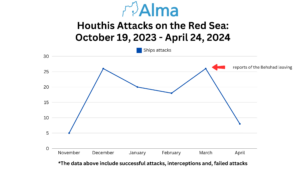[vc_row][vc_column][vc_column_text]Last month, The New York Times featured a surprising piece from the Iranian foreign minister Mohammad Javad Zarif. Upon reading the article, one finds that he has curiously coined a new term for Islamic terrorism: “Wahhabism.” The main point in the article was that the Western world should awaken to the excess influence of the Saudi policy worldwide and the correlation of Islamic militant activity with the presence of Saudi funded theological schools. A few days later, the Saudi foreign minister Adel al-Jubeir retaliated with an op-ed of his own in The Wall Street Journal titled: “Iran Can’t Whitewash Its Record of Terror”. In his article, Al-Jubeir stated that Iran is the world’s leading state-sponsor of terror, with government officials directly responsible for numerous terrorist attacks since 1979, having offered sanctuary to al-Qaeda leaders including Osama bin Laden’s son and al-Qaeda’s chief of operations, Saif al-Adel, the funding of terrorist organizations such as Hezbollah and the production of IEDs which kill U.S. troops in Iraq and Afghanistan.
A few hundred comments were posted on each article. From a brief review of both comment sections, one would understand that while Iran is being considered as a voice of reason, Saudi Arabia is a treacherous country. In other words, most of the comments on Zarif’s article thanked him for being honest and sincere, while most comments on Al-Jubeir’s article were anti-Saudi, stating that it is in Americas best interest to end its support of Riyadh. This point of view reflects maybe the only position President Obama and Putin agree upon: Shiite extremism is less dangerous than its Sunni counterpart, a position that most Israelis disagree.
From the Israeli point of view, Iran is a tangible enemy with desires to develop a nuclear bomb, and with an active proxy in Lebanon, Hezbollah. Only last week it was cleared for publication that Israeli security services prevented a big terrorist attack by Hezbollah, arresting 6 Israeli Arabs who smuggled mines from the Lebanese border, planning to plant them in the city of Haifa. Although Hezbollah is preoccupied in the Shiite-Sunni conflict in Syria, Iraq and Yemen, it found the time and resources to plan a bloody terrorist attack in Israel.
That same week rockets were fired in the middle of the day from the Gaza strip into Israel, landing in a residential neighborhood a short distance from a school in the Israeli town Sderot. The rockets were fired by the Gazzan branch of ISIS, violating (not for first time) the cease fire between Israel and Hamas in place since 2014., ISIS launches rockets into Israeli communities, despite Hamas ruling Gaza since 2006.
These two examples only in the past week, are proof once again that Sunni extremism that was nurtured by Saudi Wahhabism, is as dangerous as Shiite extremism lead by the Ayatollah regime in Iran. Yet there is one critical difference: As opposed to Iran, who’s official policy is the spreading of radical Islam and supporting terrorist organization such as Hezbollah, among the Saudis we are witnessing the seeds of change, while ISIS holds an even more radical interpretation of Islam, denying the notion of nation states in the Middle East, Saudi Arabiya among them. Members of the Saudi establishment expressed in the past year the need for reform in the desert kingdom, some of them pointed to the need to separate church and state, and to have a “religious revolution”. Moreover, due to foreign reports, Saudis are having some level of coordination with Israel, sharing the same interests concerning Iran. Of course these are only seeds of change and the way to moderate the Saudi religious school of thought is still very long.
We have witnessed many millstones of this Shiite-Sunni conflict in recent months: The Arab League declaring the Lebanese Shia Muslim movement Hezbollah a terrorist organization; Saudi Arabia suspending a $3 billion aid package to the Lebanese army due to Beirut’s failure to condemn attacks on Saudi diplomatic missions in Iran; Iran baring its citizens from traveling to Saudi Arabia for the annual Muslim pilgrimage to Mecca and more. The common opinion in Israel in the past few years was that Israel only gains from the fighting between the two sides. Yet this week it is clear that the Shiite proxy, Hizballah, and the “creation” of the Sunni radical school, ISIS and Al-Qaeda, are both challenging Israel’s security while warring each other.
Written by Ido Daniel and Sarit Zehavi[/vc_column_text][/vc_column][/vc_row]





